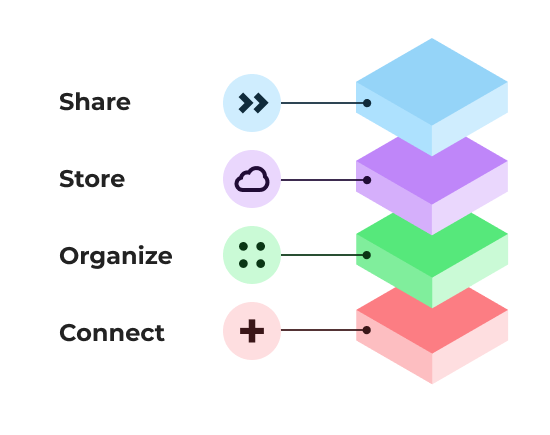-
 Written by Sean Dougherty
Written by Sean DoughertySenior Brand Creative at Funnel, Sean has more than 15 years of experience working in branding and advertising (both agency and client side). He's also a professional voice actor.
Regular readers of this blog will understand how a marketing data hub can help you evade data quota issues, automate reporting, and even help prepare your data for marketing mix modeling. But that’s just the tip of the iceberg.
Do you know what a marketing data hub can actually do for your business? In the immortal words of one of our clients, “It helps them move mountains at the click of a button.”
Businesses can leverage marketing data hubs in different ways according to their unique needs. However, a common thread across any business (regardless of the granular data you’re analyzing) is that they can gain courage when working with data and unlock bold new opportunities.
So, let’s explore how some different types of organizations can use a marketing data hub to revolutionize their business models.

A marketing data hub has four main functions, but they are just the start of what's possible.
How agencies can unlock new revenue
Marketing agencies seem to be in a constant state of flux. Managing directors have to make sure clients are fully satisfied, monitor and grow profit margins (an ever-present challenge), and ensure current resource levels are being met with inbound flows of work. Plus, they must manage industry change that could make a once-prominent revenue stream dry up overnight.
That’s a lot to keep a handle on. Meanwhile, strategists toil away, trying to serve ad hoc requests, managing breaking dashboards, and generally just keeping their heads above water.
In the old days (new millennium old days, not Don Draper old days), agencies used to rely on media sales to support much of their functions. As technology shifted away from traditional media outlets and into social media, those business models started to crumble.
In today’s work, agencies need to be incredibly lean and nimble, leaving little time or energy for building new revenue opportunities. Add evolving and complex data needs into the mix, and you understand how agency life can get so stressful.
A marketing data hub to save the day
Power Digital, a leading digital marketing agency, found themselves in a similar predicament as many other agencies. They spent more time fixing broken data pipes and smoothing out client relationships, than they did actually analyzing and interpreting what the data was telling them.
They knew things needed to change and opted to use a marketing data hub (I bet you can’t guess who they selected). What happened next was quite remarkable.
Sure, they eliminated the broken data pipes and were able to save all of that valuable time, but that was a mere first step toward new greatness.
Suddenly, their data team (who will admit they aren’t actual data scientists) was able to train their attention on data interpretation and help clients see what the next best business move was — based on solid data.
Then, well… a sort of snowball effect started to form.
The once two-person data team started to generate real, tangible value for clients. That small team started to grow — quickly.
As they grew, they could use their newfound data maturity to build a proprietary data analytics platform. This new offering helped to increase the scope (and profit margin) for existing accounts while attracting new clients.
You might say it revolutionized their business model.
Creating new proprietary offerings
Power Digital’s story isn’t a one-off. In fact, it’s surprisingly common to see how using a marketing data hub can help agencies build out new products to better serve their clients. Arm Candy, an American media intelligence agency, is another such success story.
Rather than serving consumer or B2B brands, Arm Candy tends to work with other agencies to provide better performance analysis and insights. As you might expect, data plays a huge role in their daily work.
While they were making things work with their ad hoc data stack, they needed a more reliable and more comprehensive solution. After opting for a marketing data hub, their broken dashboards and data flows seemed to magically fix themselves.
Beyond the general feeling of “ahhh” felt across the company, the ease at which they could handle and analyze data allowed them to tinker and build out their own media planning tool. This, in turn, increases their portfolio of services on offer, making them a stronger and more future-proof business.
How e-commerce brands can manage data at scale
The true power of a marketing data hub isn’t limited to agencies. In fact, the more your business uses marketing, the more benefit it can realize from these types of tools. Take, for instance, an e-commerce brand.
Pick your brand of choice: an athletic apparel brand based on a Greek goddess, a fruit-adjacent consumer technology company, or a home renovation supply company known for vast warehouse-like stores. They all need to make sense of vast reams of digital marketing data. After all, these brands advertise everywhere and use nearly every viable digital advertising technique.
With all of this marketing activity comes an endless stream of data. And to maintain their positions as market leaders, they need to quickly capture the underlying message hidden within their performance metrics.
Are these global brands stitching their data together manually via Google Sheets? Hah! No.
They use advanced tools like marketing data hubs, which can seamlessly integrate with powerful business intelligence tools.
A marketing data hub and BI tools?
We can imagine what you’re thinking right about now. “Can’t these brands send their marketing data directly to these advanced (and expensive) BI tools for their data engineers to handle?”
Sure, they could do that. But that would significantly slow down their marketing teams. As we all know, shifts in market behavior happen at the speed of life. Marketers need to stay on their toes and adapt to shifts as they happen (especially around seasonal events like Black Friday). They can’t be stuck waiting for a genius in the BI department (as smart as they all are) to attend to a single service request ticket.
These marketers need tools they can own and understand, while still playing nice with the rest of a multinational enterprise’s data stack. A marketing data hub helps them maintain their competitive edge and move faster than rival brands.
You don’t need to be a global behemoth
Small and medium-sized businesses can also realize the benefits of a marketing data hub. That’s because the marketing industry is becoming more democratized every day.
Take, for instance, advanced algorithms taking control of much of the digital advertising distribution business. These new intelligent tools from ad platforms can help mom-and-pop brands compete with the world’s biggest players. Additionally, new large language models are allowing small marketing teams to quickly outsource ideation and some content creation to machines — again helping them beef up their capabilities to better compete.
A marketing data hub is no different. It can allow smaller businesses to gain the power of data intelligence and maturity that was once limited to only the highest market cap brands.
A practical example
Let’s illustrate the idea with an example. A growing B2B start-up is trying to make sense of its marketing performance. They promote their brand across several platforms to potential customers around the world. They opt to advertise across Facebook, Google Ads, and more.
The issue is they are playing in multiple markets with different languages and currencies. Plus, their ad platforms of choice don’t agree on how to name (or even measure) their metrics. At the same time, this start-up is a small and tight-knit group running on a lean budget. They need to put their energies and investment into the strategies and tactics that will grow the business the fastest.
As you might imagine, they don’t have time to mess around with managing a bunch of shaky data pipes or half-functional performance dashboards.
However, using a marketing data hub, they can quickly gather all of their marketing performance data, ensure it speaks the same language, automatically convert currencies, and gain a holistic view of their performance.
For the team members focused on marketing, it can feel like they gained an advertising analysis team.
The marketing data hub: one tool to rule them all
A marketing data hub is one of those tools you can’t live without in the modern digital marketing landscape. As long as you promote your business digitally, an ever-growing mass of performance data needs to be analyzed. And no matter your business model or size, it’s hard to beat a marketing data hub for its versatility, power, and promise.
-
 Written by Sean Dougherty
Written by Sean DoughertySenior Brand Creative at Funnel, Sean has more than 15 years of experience working in branding and advertising (both agency and client side). He's also a professional voice actor.
